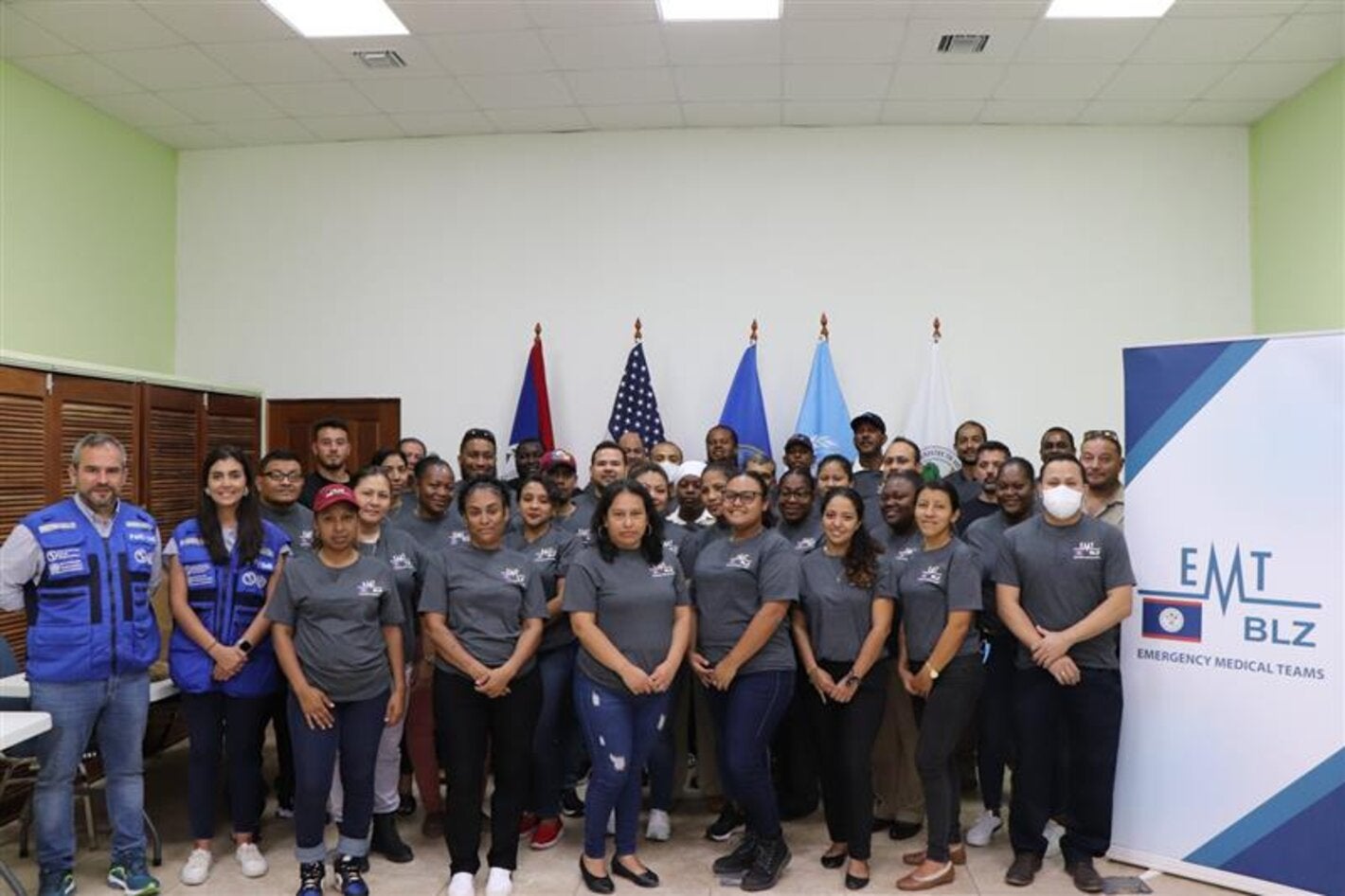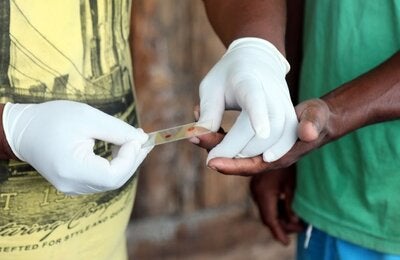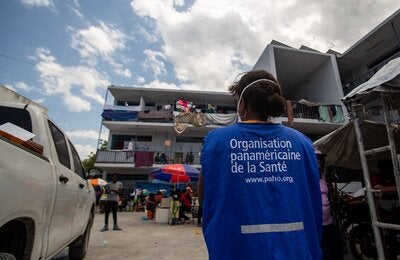
Belmopan City, Belize, February 24, 2023 – With funding support from the United States Government (USG), the Pan American Health Organization/World Health Organization (PAHO/WHO) facilitated a five-day training on water, sanitation, and hygiene (WASH), waste management and radiological imaging. The goal was to increase the capabilities and self-sufficiency of emergency medical teams (EMTs) from the Ministry of Health and Wellness (MoHW) to respond to health emergencies, pandemics, and disasters.
Access to safe water and sanitation continue to be key factors contributing to the elimination of communicable diseases during health emergencies. PAHO/WHO’s EMT initiative has helped various countries in the Americas strengthen their capacity to manage environmental health risks associated with water, sanitation, and hygiene by providing the proper tools, procedures, and training.
This training, coordinated in five practical sessions, allowed Belize’s EMTs to become well-trained and self-reliant personnel who can provide rapid emergency response. To build the EMTs’ response capacity and to ensure Belize operates under the EMT system of standards and coordination, equipment was also donated including one portable ultrasound with a convex and an array transducer, one radiography system, a waste collection and transport kit, a waste storage and treatment kit, and a water treatment system with catchment, transport, storage, flocculation, water treatment, and a gathering chlorination system laboratory.
MoHW personnel including District Health Educators, Infection, Prevention and Control Nurses, Public Health Inspectors, and Representatives from the National Engineering and Maintenance Center (NEMC) and the Environmental Unit learned to assemble, use, and effectively deploy the water supply kits and waste management kits as well as how to maintain these kits.
With emergency radiology being an important aspect of an EMT’s ability to respond and assist persons affected by disasters and other emergencies, the trainees also learned to use and maintain mobile x-ray kits for diagnosing body trauma, injuries to the head and neck, trauma to the spine and limbs, and vascular or aortic malfunction.
PAHO/WHO continues to collaborate with partners like the United States Government to enhance the MoHW’s and the country’s WASH capabilities and waste management in healthcare institutions as well as improve imaging capabilities to respond during emergencies and disasters.



